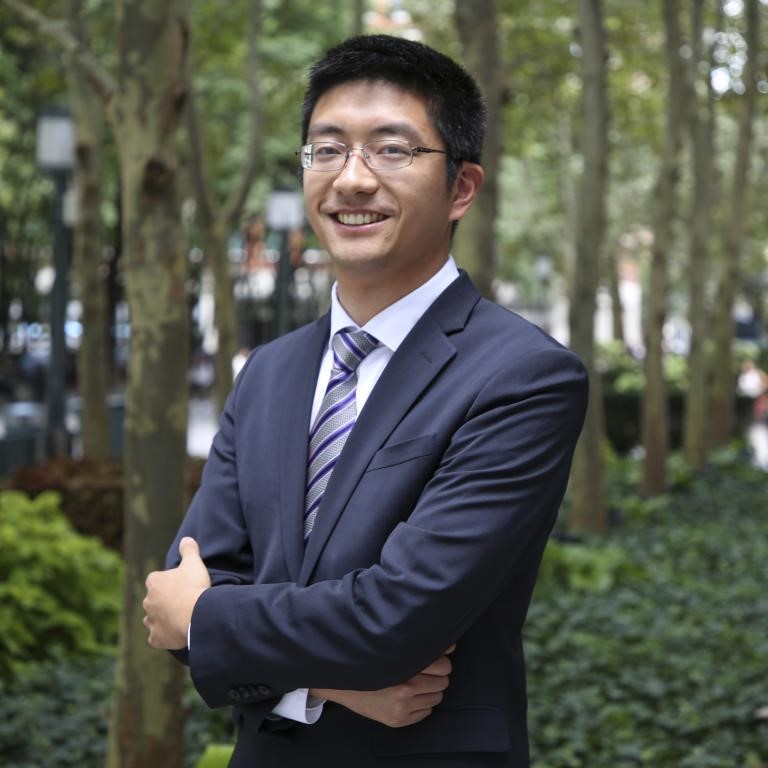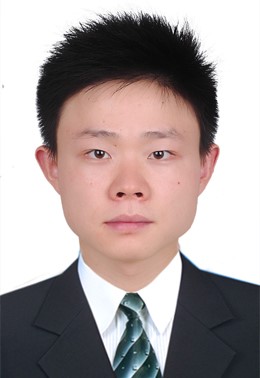

时间:2018年12月24日 13:30-15:30
地点:必赢线路检测中心 F310会议室
主办:必赢线路检测中心青年教师联谊会
邀请人:谷国迎教授(机器人研究所)
报告题目:Fantastic Voyage: Robotics at Nanoscale
报告人:樊征博士(2009届院友,Assistant Professor at University of Houston)
报告人简介:
Dr. Zheng Fan is an Assistant Professor at the Department of Engineering Technology, University of Houston. Dr. Fan received his Ph.D. degree from the Electrical and Computer Engineering program from Michigan State University, East Lansing, MI in 2015. He was a Postdoctoral Scholar in Prof. Xiangfeng Duan & Prof. Yu Huang’s group in the Department of Chemistry and Biochemistry, University of California, Los Angeles, CA. His research interests include robotics, micro-nanotechnology, design and fabrication of MEMS/NEMS devices, and micro-nanorobotic manipulations.
报告简介:
Robotic techniques have significantly extended our ability in exploring the universe from perception, understanding, and manipulation perspectives at a variety of scales, ranging from the edges of galaxy down to an individual atom. At the micro-nanoscale, both the techniques of nanorobots and nanorobotic manipulations are fast developed in recent years. My research aims at designing, prototyping, fabrication, and assembly of intelligent nanorobot systems through nanorobotic manipulations. Robotic manipulation at the nanoscale is a promising technology for handling, structuring, characterizing, and assembling nano building blocks into nanodevices or nanosystems. As continuously advancing nanosystems through nanorobotic manipulations, practical and multi-functional nanorobots could be implemented.
报告题目:Resilient Operations of Smart Highways:
Platooning, Ramp metering, and V2I Communications
报告人:Dr. Li Jin (Tandon School of Engineering,New York University)
报告人简介:
Li Jin (金力) is an Assistant Professor in the Department of Civil and Urban Engineering at the New York University Tandon School of Engineering. His research interest is resilient operations of smart transportation systems, i.e. road networks with automatic traffic controls and connected and autonomous vehicles (CAVs). He studies the system-level impact of integration of CAV platoons into highway networks, and derives insights for traffic control. He particularly focuses on in the network' resilience against cyber-physical perturbations including traffic incidents, platoon merges of connected heavy-duty vehicles, traffic signal malfunctions, and security failures. He joined NYU in Fall 2018 as a tenure-track assistant professor. He received the B.Eng. degree from Shanghai Jiao Tong University, the M.S. degree from Purdue University, both in mechanical engineering, and the Ph.D. degree from the Massachusetts Institute of Technology, in transportation. He is a recipient of the Ho-Ching and Hang-Ching Fund Award and Schoettler Scholarship Fund.
报告简介:
What makes highways smart?
How to integrate connected & autonomous vehicles into current highways?
How to effectively utilize V2I communications?
Highway systems have witnessed a significant modernization in recent years due to the deployment of traffic sensing and control capabilities. In addition, the ongoing developments in connected and autonomous vehicle technology are poised to enable advanced capabilities such as platooning and vehicle-to-infrastructure communications. On one hand, these advancements offer new opportunities for improving the operational efficiency of highway systems. On the other hand, most highway system operators still face significant challenges in ensuring adequate performance under disruptions such as incidents and other capacity-reducing events, as well as demand fluctuations. Furthermore, the inherent vulnerabilities of cyber-physical components in smart highway systems are prone to exploitation by adversarial agents, who can introduce strategic disruptions. Thus, ensuring the resiliency of highway operations is a principal concern of system operators.
Our work contributes to the above-mentioned challenge by developing a system-theoretic approach for maintaining resilient highway operations under a broad range of disruptions, modeled as stochastic perturbations in highway capacity or traffic demand. In particular, we focus on three types of highway operations: vehicle platooning, ramp metering, and capacity-aware routing/demand management. Our approach relies on (i) modeling partially automated traffic flow dynamics under disruptions as stochastically switching dynamical systems, (ii) analyzing their long-time properties (stability and/or convergence), and (iii) designing traffic control schemes that improve system throughput with stability guarantees. We demonstrate the application of our approach to several realistic situations ranging from capacity perturbations at incident hotspots to moving bottlenecks created by heavy-duty vehicles to stochastic arrivals/progression of autonomous vehicle platoons.
报告题目:软体机器人的驱动、设计与制造
报告人:陈飞飞博士(机器人研究所)
报告人简介:
必赢线路检测中心助理教授。2013年获中国科学技术大学学士学位,2018年获新加坡国立大学博士学位。从事软体机器人驱动、一体化设计及制造方面的研究。近年来以第一作者身份在Soft Robotics,IEEE/ASME Transactions on Mechatronics, IEEE Robotics and Automation Letters等国际期刊以及ICRA等机器人领域顶级国际会议上发表论文10余篇。
报告简介:软体机器人主要由可承受大应变的软材料组成, 可在外部物理激励下产生大的连续变形从而改变自身形状和位姿。软材料本身的柔性赋予机器人对环境的适应性,使得其在人机交互、医疗、救援、家庭服务等领域都有广阔的应用前景。本次报告将主要介绍基于拓扑优化思想的电驱动软体驱动器和软体机器人主体结构设计方面的工作,并对目前存在的挑战性问题进行探讨。
